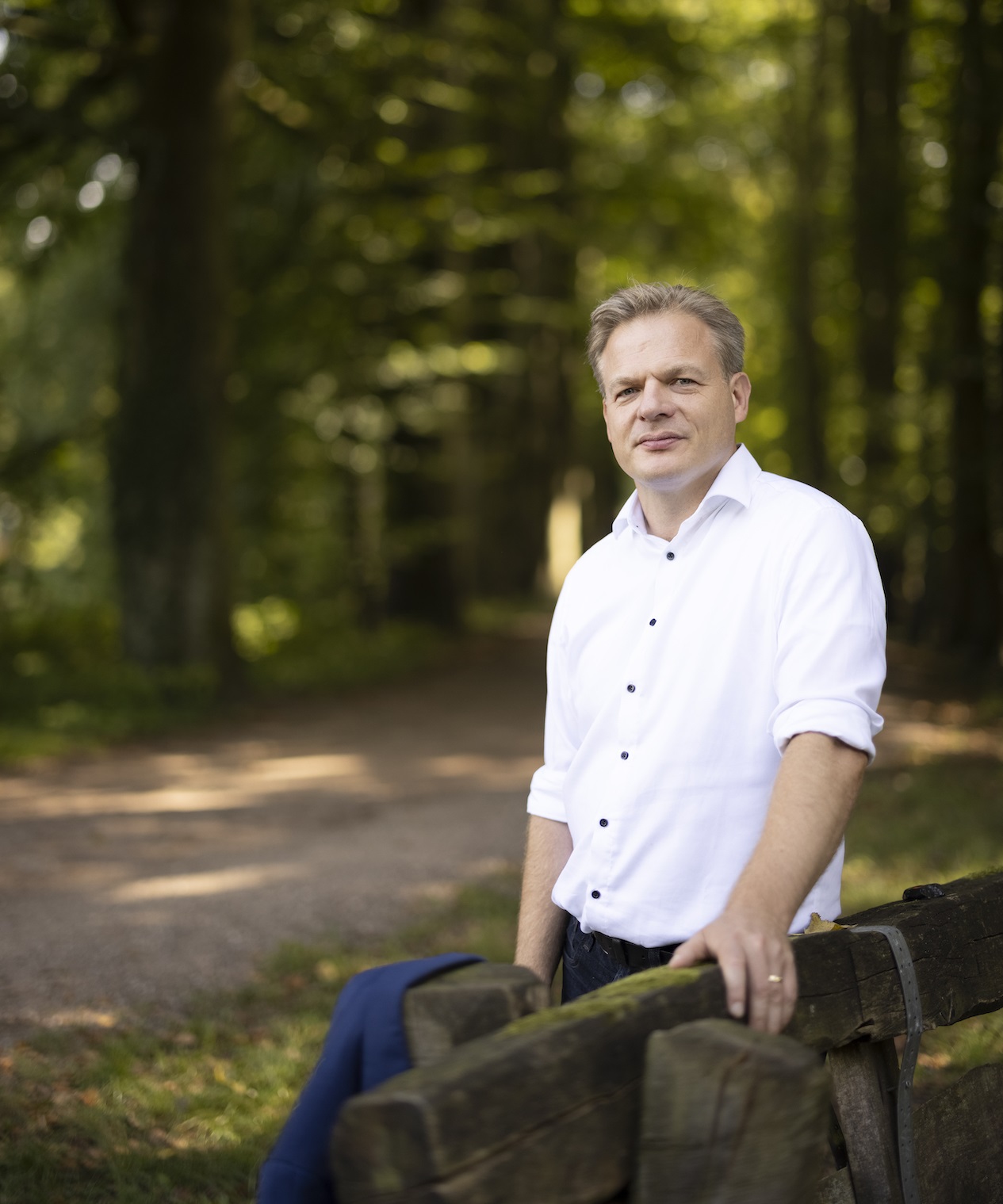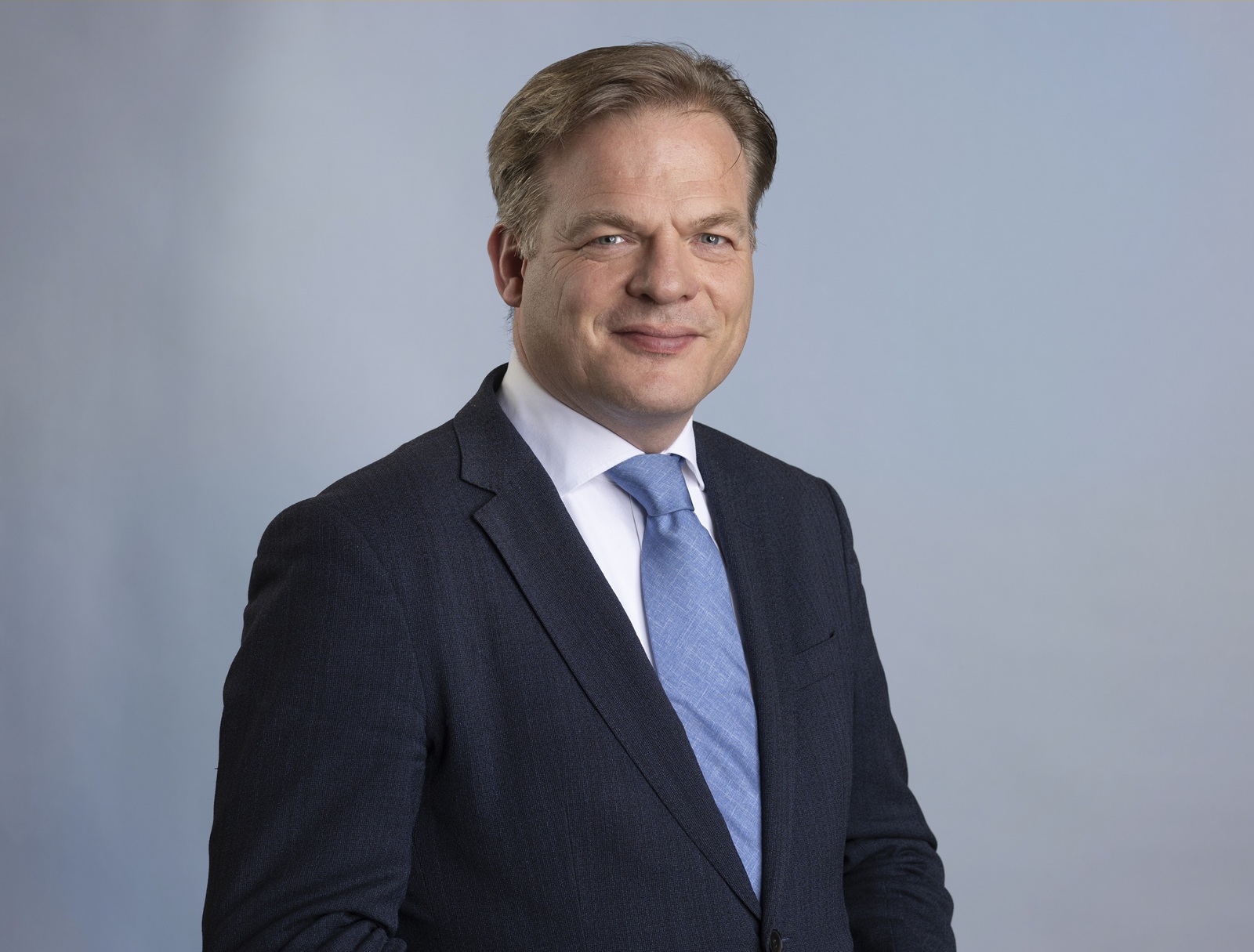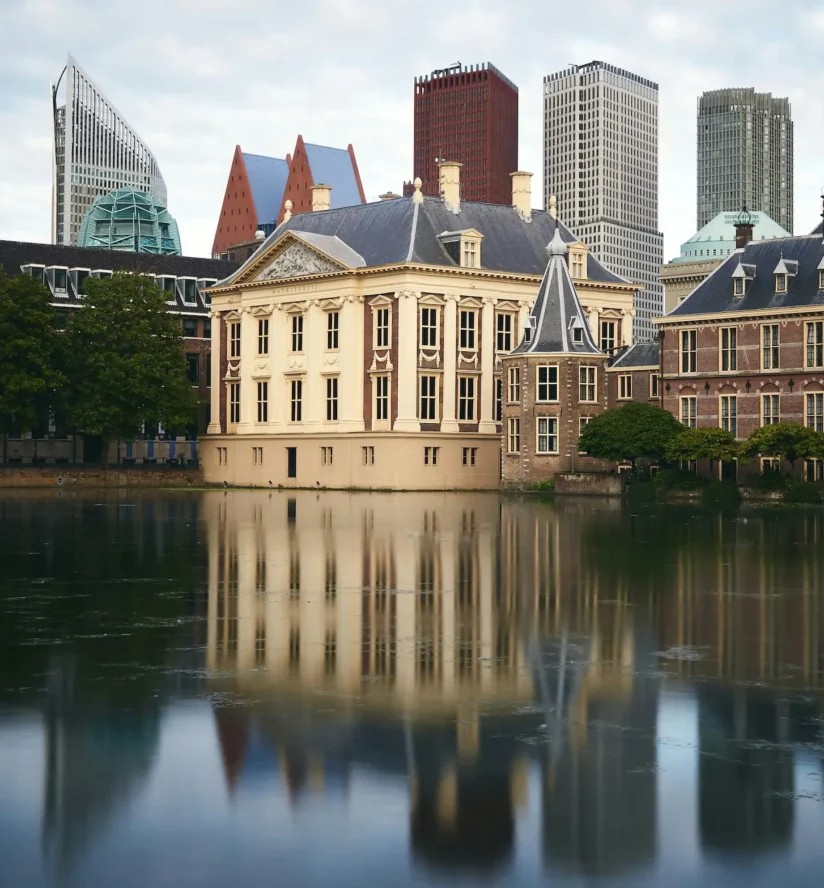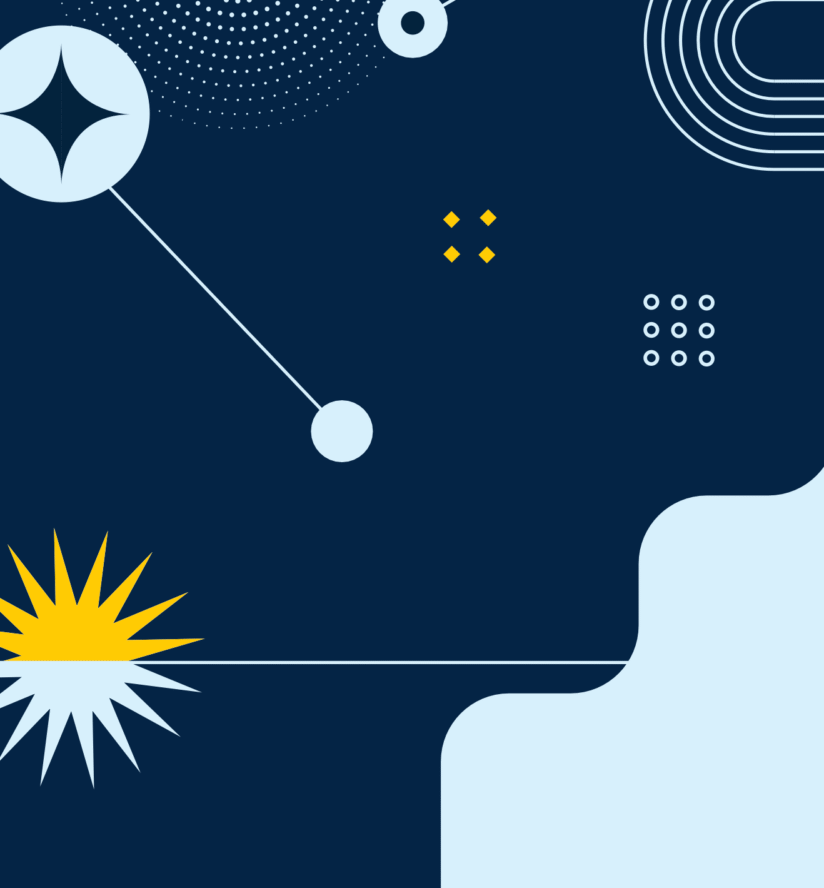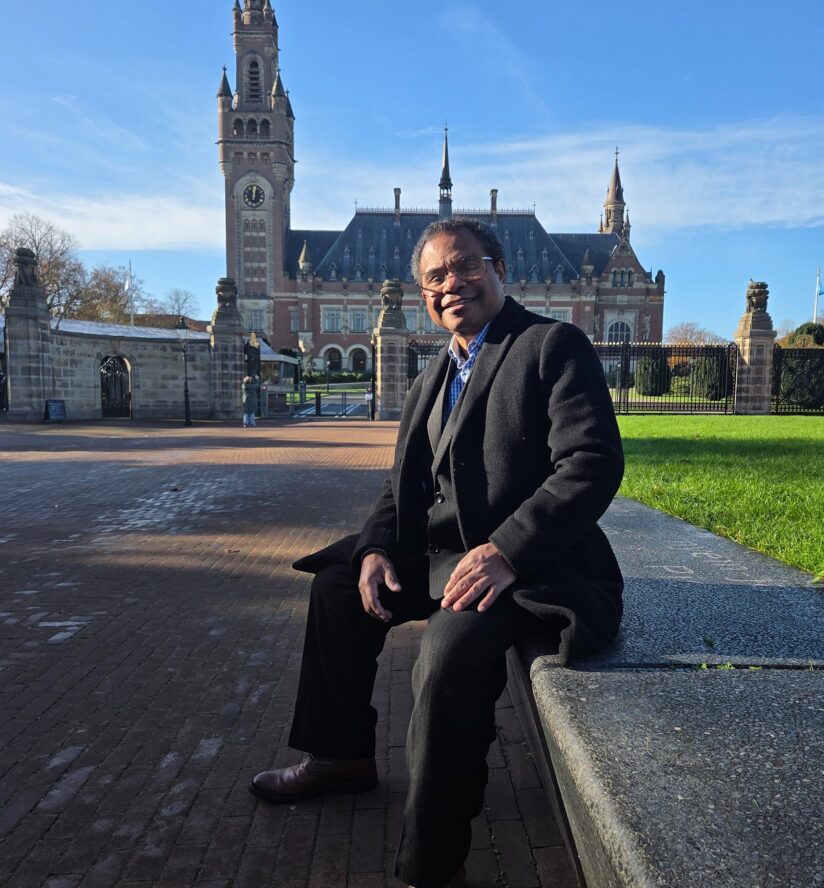[Download the full article (PDF) via ‘Download Publicatie’]
Pieter Omtzigt has spent considerable time in the Council of Europe during his long political career. From this experience, he speaks with a mix of commitment and concern about the state of the international legal order and the Dutch Rule of Law.
From optimism to erosion
When Pieter Omtzigt took his seat in the Parliamentary Assembly of the Council of Europe on behalf of the CDA (Christian democratic party) in 2004, the continent was in a period of optimism. “After the fall of the Soviet Union, countries like Poland, the Baltic States, Ukraine, and Russia joined. The belief was that by being nice, everyone would slowly march toward democracy and the Rule of Law,” he says. “It seemed like a peak of confidence in international cooperation and the end of history.”
But that trust proved fragile. Omtzigt lists examples of times when the Council of Europe failed to intervene: the Russian wars in Chechnya and against Georgia, the annexation of Crimea, the war in the Donbass, and the expulsion of Armenians from Nagorno-Karabakh. “When member state after member state, particularly Russia, Azerbaijan, and Turkey, systematically violates human rights and even wages wars and expels people without facing consequences, the organization loses its credibility as a human rights watchdog. Then you’re a paper tiger.”
Big in small cases, small in big ones
Omtzigt sees one of the structural problems with the European Court of Human Rights. “The Court is big in small cases and small in large ones. It handles a multitude of individual complaints, often migration cases, but crucial interstate conflicts, such as those concerning the Russian attack on Georgia , remain dormant for years. As a result, it loses its core function.”
He advocates for a reprioritization: handling major human rights cases more quickly and rigorously, and actually having the courage to suspend or expel member states that violate the rules. “In any sports club, you get expelled if you get three red cards. Why should it be any different in a human rights organization?”
Genocide and impunity
Omtzigt also sees worrying patterns outside Europe. He points to the crimes of ISIS. “For the first time since the 1940s, we’re dealing with an organization that openly commits genocide. They published videos of beheadings and slavery. Yet thousands of European foreign fighters were never systematically prosecuted. That’s a disgrace to the West: they participated in an organization that systematically beheaded, murdered, and enslaved women and girls.
Omtzigt therefore advocated for international prosecution and even filed a complaint with the International Criminal Court. But the political will lagged behind. “As long as states don’t prosecute their own citizens, we’re sending the message that even genocide can go without consequences.”
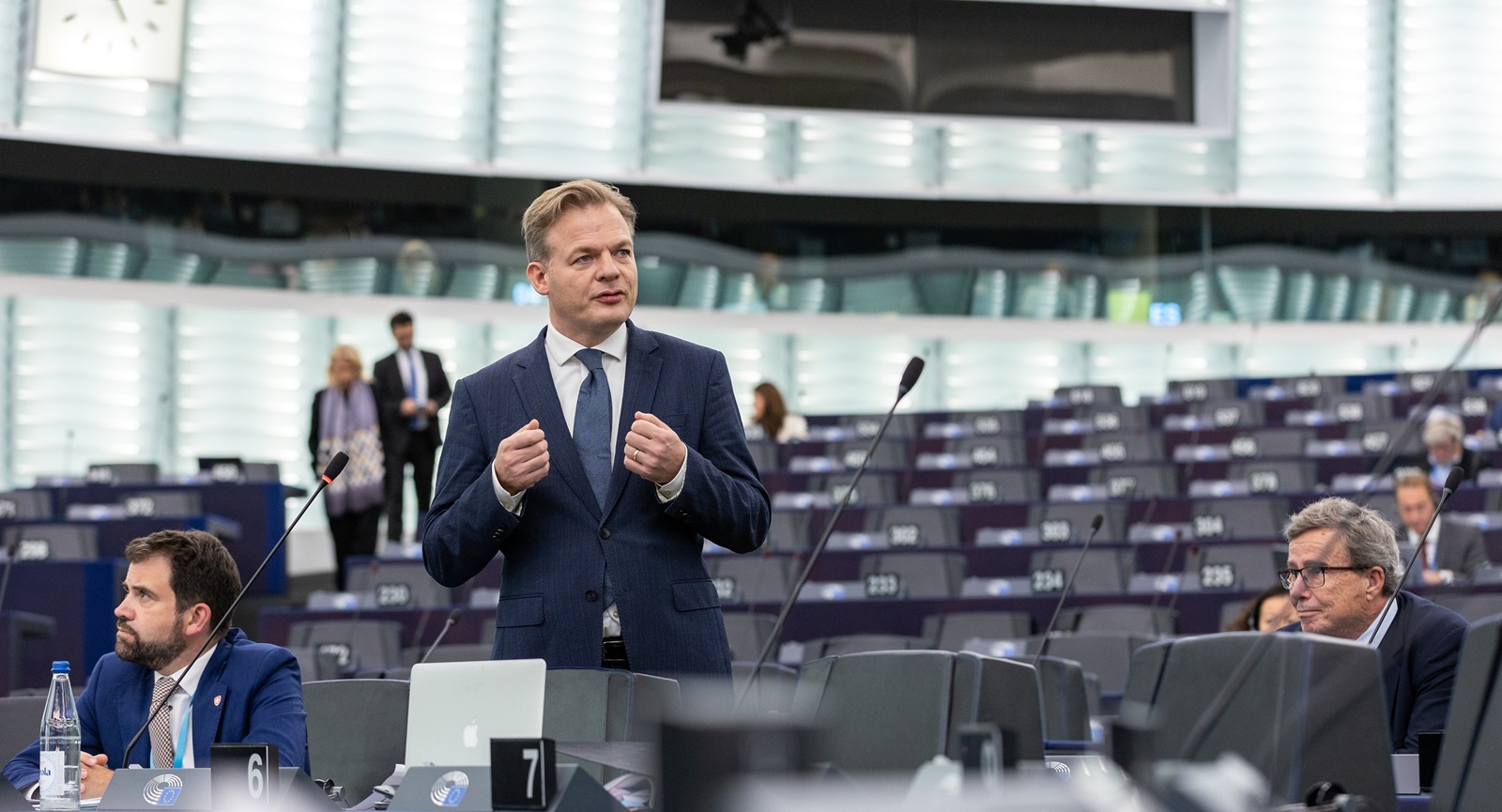
The Dutch Rule of Law is under pressure
His international experience has made Omtzigt look more sharply at the situation in the Netherlands. “You can talk about lofty human rights ideals abroad, but if young people can’t find housing here or middle-income earners can’t access legal aid, then your own Rule of Law crumbles.”
He points to the childcare benefits scandal, the expansion of powers of the Public Prosecution Service, which imposes many sentences without judicial intervention, and the lack of transparency in data linking by the government.
Furthermore, people feel there’s a double standard. When farmers with tractors block a highway, there is often no prosecution. The same applies to Extinction Rebellion, which knows all the rules and loopholes, while the “blockade Frisians” are dealt with harshly. This undermines trust in the equal application of the law.
Social fundamental rights as a foundation
According to Omtzigt, the legitimacy of human rights policy or international solidarity hinges on the domestic Rule of Law. “Social fundamental rights—a roof over your head, security of existence, access to justice—are the foundation. If these are under pressure, support for the international Rule of Law also erodes.”
That is why he advocates for a national recovery program: investments in affordable housing, strengthening legal aid and much better parliamentary oversight of the use of surveillance technology.
“Restoring trust is crucial”
For Omtzigt, the lesson is clear: the international legal order can only be credible if countries have their own constitutional systems in order. “The Council of Europe is more necessary than ever, but it can only play its role if it enforces its internal rules more rigorously. And the Netherlands must realize that the Rule of Law begins at home. Restoring trust is crucial – both for our society and for our international position.”
The most difficult reports
When asked which international report most affected him, Omtzigt doesn’t have to think long. “It was definitely my research on ISIS. You speak to victims who lost their entire families, who were used as sex slaves themselves, or who barely escaped. Those stories are heartbreaking. And the hardest part was: ultimately, you can’t do anything for them. Many survivors still live in camps in Iraq, while some ISIS members were able to travel back to Europe. You see the injustice, but your hands are tied.”
The investigation into the murder of Maltese journalist Daphne Caruana Galizia was also intense. “The entire Maltese state apparatus started to obstruct. You can feel in everything that you’re stepping into a hornet’s nest.” And then there was the corruption case in which Azerbaijan also influenced and bribed members of Omtzigt’s own EPP group. “That hits you particularly hard. It wasn’t about ‘distant people,’ but about direct colleagues. I was in a group that was supposed to safeguard human rights, but I couldn’t trust my own direct colleagues.”
Pressure and opposition
Omtzigt emphasizes that political pressure is part of the job. “As a rapporteur, you must always be prepared to speak to ministers and listen to the parties within a country. Exercising influence is their prerogative. The question is: how do you handle it? Do you let yourself be influenced, or do you stick to the facts?”
That attitude often cost him a great deal of energy and political struggle. Yet, he considers it a core element of democratic work. “Without resistance, there is no control. But the price is high: opposition, threats, and sometimes the feeling of being alone.”
Corruption in the Council of Europe
One of the most sensitive issues Omtzigt worked on concerned Azerbaijan’s so-called ‘caviar diplomacy.’ “I discovered that several members of my own EPP group had also been influenced and bribed by Azerbaijan,” he says. It wasn’t just peripheral figures, but parliamentarians holding important positions within the Council of Europe. This directly jeopardized the institution’s credibility.
Omtzigt chose to confront the issue rather than stay silent. “We rallied support, demanded an independent external investigation, and I posed questions publicly in the Council. By doing so, I forced transparency and as a result they couldn’t simply let the issue disappear behind closed doors.” This didn’t make him popular with those involved, who used their positions to pressure him and frustrate his work. “But silence wasn’t an option. Precisely because the corruption was happening right within the organization, it had to be brought out into the open. I understood how whistleblowers must have felt.”
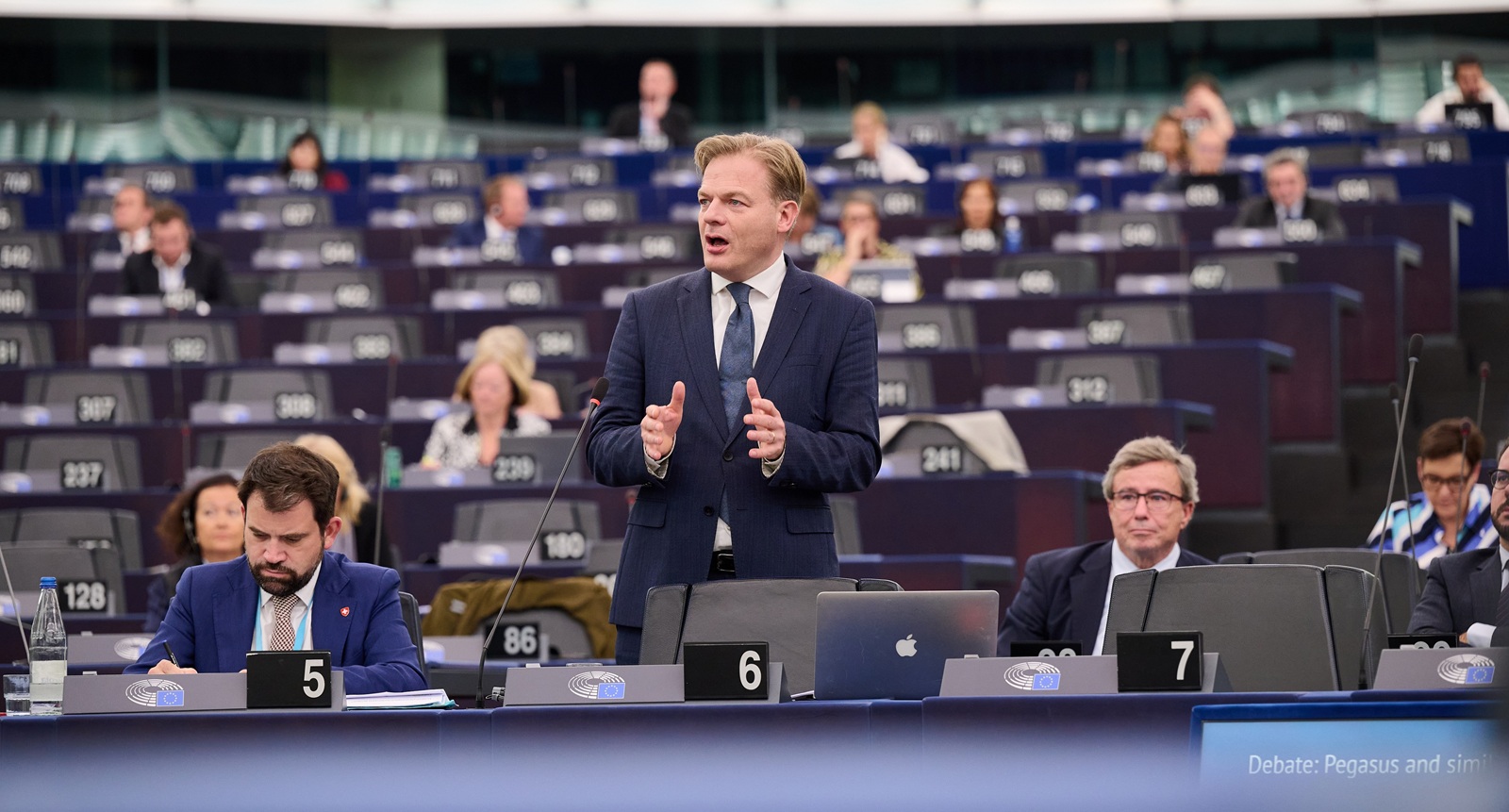
Whistleblowers: indispensable but unprotected voices
A recurring theme in Omtzigt’s work is the position of whistleblowers. “If there’s no culture in which whistleblowers are protected and valued, nothing changes. And that’s true in the Netherlands as well. Look at the childcare benefits scandal: whistleblowers were simply fired, sometimes for trivial reasons. That’s perhaps the most painful case we’ve ever dealt with.”
According to Omtzigt, more than just legislation is needed: a fundamental cultural shift is needed. “We too often treat citizens as consumers, not as active participants in society. Since the long rule of coalitions without Christian democratic parties, that relationship has become skewed. We urgently need a new social contract.”
A society of bubbles
He is concerned about social cohesion. “We think we’re an egalitarian country, but we’re not. We live in bubbles, separated by education level, income, and neighborhood. In the past, we had institutions like churches and broad sports clubs where people used to meet. Those have now disappeared. The result is that we no longer understand each other.”
According to Omtzigt, this lack of shared experience also translates into politics. “Trust in institutions is declining. And without trust, democracy is eroded.”
Reform of the Council of Europe
His international experience reinforces his conviction that institutions like the Council of Europe also need to be reformed. “Fundamental freedoms must be rigorously protected. But there also needs to be a clear margin of appreciation, room for countries to make their own choices. Currently, it’s often a matter of both: minor issues receive all the attention, while major violations remain under the radar.”
He advocates for a thorough discussion of the role of international organizations. “The international legal order is under great pressure because countries can ignore and break the agreements with impunity, while everyone else just watches and stands by.
The state of Dutch democracy
Omtzigt extends this perspective to the Netherlands. He paints a worrying picture: too few checks and balances , a weak parliamentary culture, and complex legislation that is barely manageable with the limited support available to members of parliament. “The turnover of members of parliament has become far too high. Legislation is piling up, but parliamentarians are given too little time and resources to do their jobs properly.”
That’s why he advocates for strengthening parliament, providing more support, and giving independent institutions a stronger role. He also believes the Netherlands should have its own constitutional court. “We’re the only country that sees the ECHR as a passive constitution. That makes us vulnerable. We need to be much more vigilant, even, or especially, towards the government.”
Europe’s declining influence
Besides the internal problems of democracy, Omtzigt points to the geopolitical reality. “At the beginning of the 20th century, Europe still had twenty-five percent of the world’s population and was economically dominant. Now we’ve become a much smaller, less influential continent, economically dependent on others. When Trump imposed tariffs, it became clear how vulnerable we are. That should have been a wake-up call , but we simply fell asleep again.”
The observation is sobering: Europe no longer plays a leading role in the global order, but acts as if it still does. “We must rethink what we can and want to contribute. Because if we continue to act as if everything has remained the same, we will be permanently sidelined and transformed from a player into a pawn.
Personal balance
Reflecting on over twenty years of international politics, Omtzigt also emphasizes the personal toll it took. “Combining political work with a family is tough. You’re always on the go, always working. That’s sometimes hard to explain at home.” He describes how the workload was sometimes overwhelming. “I often felt like I was on my own. The cases were incredibly complex and they piled up: corruption, human rights. It was especially tough when I was working on the childcare benefits scandal in The Hague and dealing with a ‘position elsewhere,’ while simultaneously fighting corruption in my own circle in Europe, a murder investigation in Malta, and an investigation into Putin at the behest of Vladimir Kara Murza, who himself was imprisoned.
Yet, he remains convinced that the work is necessary. “Democracy doesn’t function by itself. You have to fight for it every single day.”
A message to the new generation
At the end of the conversation, Omtzigt addresses future parliamentarians. “Don’t expect the system to solve the major problems on its own. The current political system is inadequate. It takes courage to take your own role seriously, to persevere against pressure and opposition.”
His core message: restoring trust – in politics, in institutions, and in society itself. “Without trust, there is no democracy. This applies in the Netherlands, but equally in Europe and beyond.”
